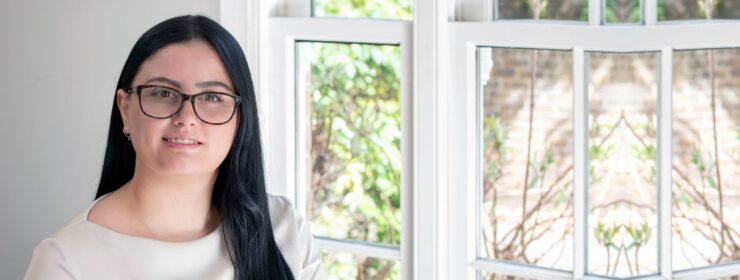Cohabitation occurs when two or more people occupy a property together. Cohabitation has become far more common in recent years as couples, friends and family members enter into informal and casual agreements to live together.
This article explores some of the common issues that arise between cohabitees by exploring the fictional life of Bilbo Baggins and his family.
Scenario
In 2009, Bilbo Baggins purchased Bag End, a house in the Shire for £100,000. He was registered as the sole legal owner. His orphaned nephew, Frodo Baggins, contributed £10,000 to the purchase price and went to live with his Uncle Bilbo. Frodo spent money repairing the roof of Bag End and has contributed 50% to the household bills since he moved in.
In 2015, Bilbo married another hobbit at the Shire, Berylla Boffin. They had five children together: Mungo, Pansy, Ponto, Largo, and Lily. Shortly after their marriage in 2015, Bilbo arranged for Bag End to be transferred into the joint legal names of himself and Berylla.
During Frodo’s absence on a trip outside of the Shire in 2017, Bilbo mortgaged Bag End to Sméagol’s Bank to finance a business venture (children’s book writing), which has since failed. As the mortgage payments have not been met, Sméagol’s Bank wishes to obtain vacant possession of Bag End in order to sell it. Frodo wishes to remain in the house. What can Frodo do?
The law
Where land is owned by two or more people, a trust of land is automatically created which is regulated by Trusts of Land and Appointment of Trustees Act 1996 (“TOLATA”). This means that there will be trustees of the property (the legal owners) and beneficiaries of the property (the equitable owners, who do not necessarily appear on the legal title but who are entitled to the equity and any income derived from it).
TOLATA (as interpreted by previous court cases) sets out the rights of beneficiaries and the duties of trustees, and will come into play whenever there is a dispute between the trustees and/or the beneficiaries over the property.
As a result, a trust of land is automatically imposed upon Bag End because it is owned by bothBilbo and Berylla. Bilbo and Berylla are therefore trustees of the property, and hold it on trust for the beneficiaries. This begs the question, who are the beneficiaries?
An important principle which applies to cases of this nature is the equitable maxim: ‘equity follows the law’. What this means in practice is that the beneficial ownership will be deemed to mirror the legal ownership, unless there is evidence to the contrary. As, therefore, legal title to Bag End was conveyed into the joint names of Bilbo and Berylla in 2015, the starting presumption is that Bilbo and Berylla hold the property on trust for themselves in equal shares.
As aforementioned, this is only the starting presumption, so it can be displaced if there is evidence that the parties intended to hold the beneficial interest in a different way, e.g. in unequal shares, or for different beneficiaries.
A clear-cut way to evidence this is an express declaration of trust which satisfies the formality requirements of section 53(1)(b) of the Law of Property Act 1925 and which declares the identity of the beneficiaries and the quantum of their respective beneficial shares. Unfortunately, no such document was signed in respect of Bag End.
In the circumstances, one must look to other potential claims to rebut the ‘equity follows the law’ presumption. Such claims are commonly advanced on the basis of one or more of the following:
- an interest in the property under a resulting trust;
- an interest in the property under a common intention constructive trust; and/or
- an interest in the property arising under the principle of proprietary estoppel (such claims are outside the scope of this article, but please see our earlier article for more information).
Resulting trusts
Where a person makes a contribution to the purchase of a property bought in the name of another person (such as Frodo), the person making the contribution may be able to claim that the property is held on trust for them under a ‘resulting trust’. Where a resulting trust exists, that person will be entitled to a share in the property that is proportionate to the amount contributed.
Resulting trusts adopt a strict mathematical approach which does not necessarily lend itself to a fair division of value in the context of a family home (i.e. in a domestic context), as is the case between Bilbo and Frodo. The application of resulting trusts has therefore declined over recent years in favour of the constructive trust. The court is therefore far more likely to consider beneficial interests in the context of a constructive trust analysis in the domestic consumer context.
What is meant by “domestic consumer context” is not altogether clear. It plainly includes properties that are bought as a matrimonial or quasi-matrimonial home for people in a cohabiting (or cohobbiting!) relationship, but it is less clear whether it includes a property purchased and occupied by other family members or friends. In Gallarotti v Sebastianelli, a constructive trust (rather than a resulting trust) was found to arise over a property bought by two friends, but registered in the sole name of one of them. As a result, the principles of a resulting trust are unlikely to apply to Bilbo and Frodo.
Constructive trusts
Constructive trusts arise from the common intentions of the parties and resulting detriment. Such trusts come into play where there is a common intention (i.e. an intention that is shared between the parties) regarding the sharing of the beneficial interest in the property.
When considering whether a constructive trust has arisen in favour of a person not registered on the legal title, the court will follow a two-stage enquiry, per Lloyds Bank v Rosset:
Stage 1: Was there a common intention to share the beneficial ownership?
Stage 2: If yes, what did the parties intend the quantum of their respective shares would be?
If Frodo is going to seek a beneficial interest in Bag End, he will therefore need to establish that there was a common intention to share the beneficial ownership with him. This can be established by Frodo proving either that:
- There was an express agreement, arrangement or understanding that the beneficial ownership would be shared with Frodo. This requires there to be evidence of express discussions between Frodo and Bilbo, however imperfectly remembered and however imprecise the terms may have been, of an actual agreement, arrangement or understanding to this effect; or alternatively
- In the absence of any such express agreement, arrangement or understanding, the court can infer an intention to share the beneficial ownership based on the parties’ conduct. That conduct must arguably be financial conduct referable to the purchase of the property or subsequent mortgage payments, though the court may be starting to soften its stance on the types of conduct it will consider.
In this scenario, there is no indication that Bilbo and Frodo ever discussed the matter of sharing the beneficial interest in Bag End, so an express agreement constructive trust is unlikely to be found.
As regards an implied agreement constructive trust, Frodo can point to his conduct in having paid £10,000 towards the purchase of Bag End, repairing the roof at his own expense, and paying 50% of the household bills. Even applying the strict rules from Rosset, Frodo’s initial £10,000 contribution is likely to give rise to an implied common intention, and his later payments are further evidence of detriment which could be considered when assessing the quantum of Frodo’s share.
The position of Sméagol’s Bank
As for Frodo’s ability to resist a sale by Sméagol’s Bank, where a person can show that they have a beneficial interest in the property, they may be able to thwart the repossession of that property by the bank. To do this it is necessary to show that the person was in occupation of the property at the time the mortgage was granted and that they did not consent to the mortgage. If those criteria are met then the person may be said to have an ‘overriding interest’, which will trump the bank’s interest.
It is arguable whether Frodo was in occupation at the time of the mortgage, because we are told that he was away on a trip outside of the Shire at the time. It is not known the extent to which he left possessions in Bag End or how reasonably obvious it would have been to the bank, had they inspected the property, that someone else was living there.
Unfortunately, for Frodo however, the bank’s payment of the mortgage monies to two people (Bilbo and Berylla) is likely to have overreached Frodo’s beneficial interest. This means that the interest of the bank will take precedent over Frodo’s interest.
It would therefore appear that, notwithstanding any beneficial interest in the property that Frodo might have, Frodo’s options are limited as against Sméagol’s Bank, which is likely to be able to enforce its charge.
Conclusion
By exploring the details of the arrangements between Bilbo, Frodo and Sméagol’s Bank, this article demonstrates how informal cohabitation arrangements (in this case, between family members) can present some very complex legal issues. If in any doubt about any aspect of cohabitation, or where a non-legal owner intends to make financial contributions to another’s property, advice should be sought at the earliest opportunity to ensure that the repercussions are fully understood.
For further assistance or advice on property disputes, please contact Laura Tanguay on [email protected] or 01473 299188 or Lucy Grunwell on [email protected] or 01473 921761.
The content of this article is for general information only. It is not, and should not be taken as, legal advice. If you require any further information in relation to this article please contact the author in the first instance. Law covered as at July 2022.









